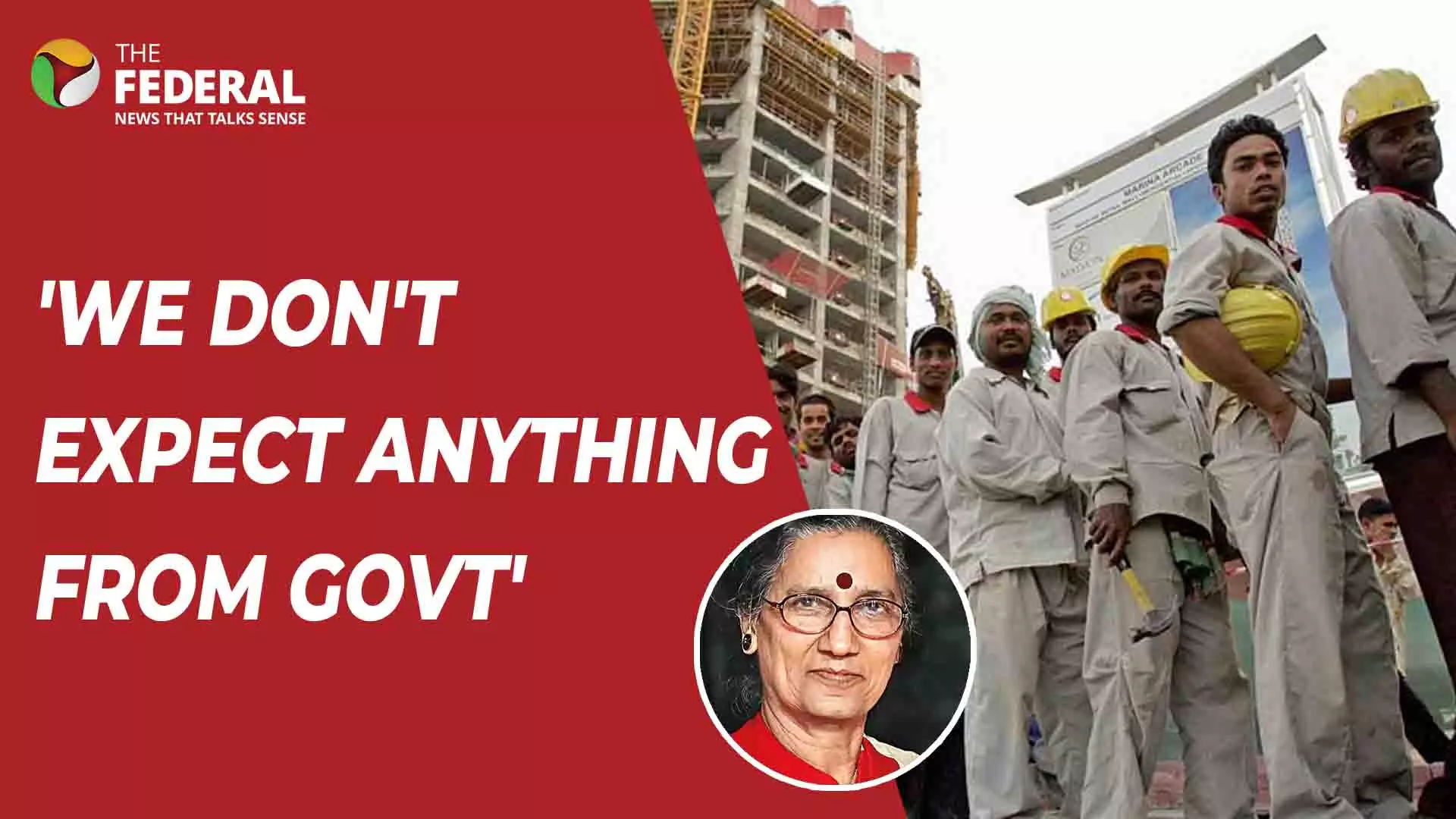
Not expecting much from this budget: Veteran trade unionist Amarjeet Kaur
In an interview, trade unionist Amarjeet Kaur discusses India's labour issues, expectations of workers from upcoming budget and need for trade union unity

India's labour movement today faces mounting challenges as workers grapple with the impact of privatisation and changes in the labour law.
Amarjeet Kaur, general secretary of the All India Trade Union Congress (AITUC), in a conversation with The Federal, shared her insights on the movement's challenges, budget expectations, and future strategies. Further, Kaur emphasised the lack of political will despite widespread protests in a country with the world's second-largest working-age population.
"We are not expecting much from this budget," Kaur said, citing the government’s history of favouring corporates over workers. She added that trade unions have united to demand increased investment in labour-intensive sectors, improved social security, and enhanced public services like health and education.
Budget expectations, concerns
During pre-budget consultations, trade unions submitted a memorandum outlining their demands.
Their list of demands included taxation on wealth and corporate gifts, more funds for MGNREGA, and a similar scheme for urban India.
"We asked for increased spending on public services and employment generation," Kaur said. However, she noted that there was no positive response from the finance minister, Nirmala Sitharaman, and added, "We are preparing for nationwide protests as we anticipate no relief for workers or the middle class."
Kaur also criticised schemes like the Production Linked Incentive (PLI), stating they only benefit corporates without creating meaningful employment. The unions have also demanded the inclusion of scheme workers in ESI benefits and granting them worker status.
Also read: Five states not ready with draft rule on Labour Codes: Minister
Protests against labour codes
The labour codes, set to be implemented from April 2025, remain a contentious issue.
Kaur highlighted the detrimental impact of these codes, including raised thresholds for industry closures and relaxed regulations for contract labour.
"Seventy per cent of industries will be excluded from labour law protections," she warned.
She also criticised the restrictions on strikes, changes in wage definitions, and weakened social security provisions. "These laws dismantle 150 years of labour struggles," Kaur said, adding that unions are planning a massive protest in April to oppose these changes.
Collaborating with farmers
Trade unions are collaborating with farmer groups like Samyukt Kisan Morcha (SKM) to strengthen their movement. A joint meeting recently resulted in plans to support the farmers' 26th January Tractor March and synchronise protests during the budget announcement.
"Unity between workers and farmers is crucial to challenge government policies," Kaur said.
Both groups are also planning a large-scale convention in April to address broader issues, including polarisation, economic challenges, and public service neglect.
"Our fight is not just about labour and farmers but also against policies that divide and polarise India," Kaur asserted.
Also read: Trade unions’ rejection of UPS latest reminder of Modi’s lowered stature
Call for unity
On the topic of trade union unity, Kaur acknowledged the historical divisions but pointed out the recent efforts to consolidate.
"We came together in 2009 to form a platform of 10 central trade unions. While organisational unity may take time, the need for collective action has never been greater," she said.
As neo-fascist policies and attacks on worker rights rise globally, Kaur stressed the importance of a united working class.
"We must think of the larger picture and work towards unified action against capitalism's offensive," she concluded.
The content above has been generated using a fine-tuned AI model. To ensure accuracy, quality, and editorial integrity, we employ a Human-In-The-Loop (HITL) process. While AI assists in creating the initial draft, our experienced editorial team carefully reviews, edits, and refines the content before publication. At The Federal, we combine the efficiency of AI with the expertise of human editors to deliver reliable and insightful journalism.

